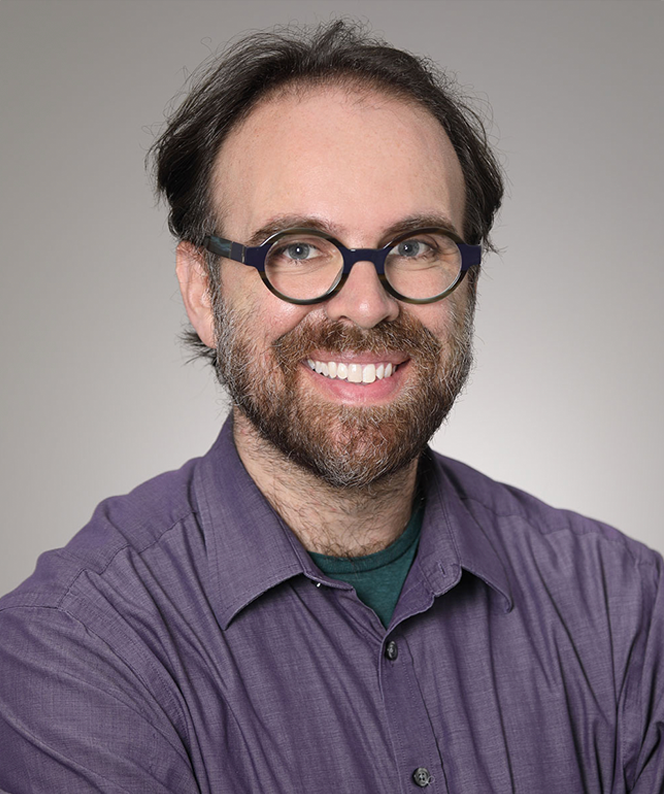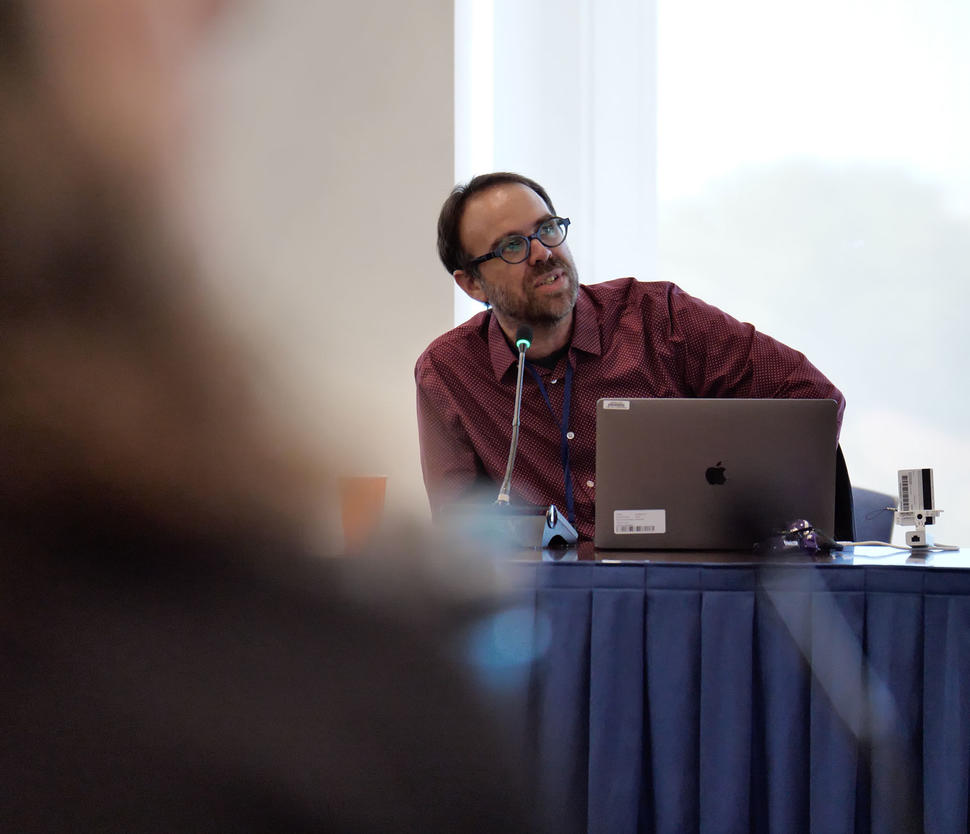New Research Physician Helps Fight Rare Brain Tumors with Knowledge
, by Raleigh McElvery, Neuro-Oncology Branch Scientific Communications Editor
Dr. Byram Ozer joins NCI-CONNECT to help care for and educate patients, while bringing together medical professionals to learn new skills and treatment approaches.
Tumors that start in the brain or spine constitute less than two percent of all cancers diagnosed each year in the United States. Not only are these central nervous system (CNS) tumors extremely rare, but there are over 130 different subtypes. This combination of factors can make CNS cancers challenging to treat, but researchers at NCI-CONNECT are on a mission to improve prognosis and provide patients with exceptional care.
As a new assistant research physician at the NCI Center for Cancer Research’s Neuro-Oncology Branch (NOB), Byram Ozer, M.D., Ph.D., brings years of molecular biology expertise to both his research program at the NOB as well as the NCI-CONNECT Clinic, where he treats patients with rare CNS cancers. He aims to fight these tumors with knowledge—combining laboratory findings with observations from the clinic. He also educates both patients and providers to improve their experiences, ensure personalized care, and inspire new treatments.
Leveraging Molecular Biology Research to Provide Patient Care and Education
Dr. Ozer began his research career by asking very fundamental biological questions about how tumors grow. As a medical and doctoral student at the University of Wisconsin School of Medicine and Public Health, he investigated the role that mutations in the EGFR gene play in glioblastoma development. Later, as a research fellow at the University of California, Los Angeles, he spearheaded projects with more immediate translational applications and looked for clues in patients’ genetic data to predict prognosis.
Initially, Dr. Ozer thought he’d spend most of his time helping patients from the lab bench—uncovering insights about cancer biology that would ultimately inform more effective treatments. But all that changed when he became an assistant professor at the Johns Hopkins Sidney Kimmel Comprehensive Cancer Center and began treating patients at Sibley Memorial Hospital. While his lab work continued to inform his patient interactions, he also realized the value of using real-life patient experiences to direct his bench-side research and inform clinical trials. His aptitude for combining lab research with clinical care was what ultimately drew him to NCI.
“I jumped at the opportunity to join the NOB and NCI-CONNECT,” he says. “Providing good clinical care is important and necessary, but developing a fundamental understanding of these diseases on a molecular level is also paramount to a neuro-oncologist's work. Both approaches complement one another and go a long way to reduce human suffering.”
Dr. Ozer is eager to leverage his background in bimolecular chemistry to collaborate with investigators at the NOB to develop treatments for rare CNS tumors, such as choroid plexus tumors, pineal gland tumors, and high-grade meningiomas. The first step in that process, he says, is understanding how these tumors grow and spread. He’s also working to trace the molecular clues they leave behind to help predict patient survival and identify effective treatments. In addition, he advocates for designing “adaptive” clinical trials to meet the needs of small patient populations with rare diseases.
Beyond providing world-class care at the NCI-CONNECT Clinic, Dr. Ozer hopes to educate his patients about the treatments and resources available to them. In the past, he has also helped to lead brain tumor support groups, sharing tips for managing symptoms as well as finding clinical trials.
“Oftentimes, patients with little to no medical training are expected to make very personal and sophisticated decisions about their care,” he explains. “The best way to support shared decision-making is to inform patients so they can make the best decision for their health—especially because much less is known about many of these rare CNS tumors. I think patient education is extremely important in every clinical encounter.”
Educating the Health Care Providers of Today and Tomorrow
As a research physician, Dr. Ozer is constantly learning new things from both his lab work and his patients. As a result, he knows firsthand just how crucial it is to create learning opportunities for medical professionals. He assists Senior Clinician Marta Penas-Prado, M.D., with her virtual tumor board, which gathers together neuro-oncologists, radiation oncologists, neuropathologists, and neurosurgeons once a week to discuss select patient cases.
Because brain and spine tumors are so uncommon, Dr. Ozer explains, oftentimes providers are working with limited information. This is especially true if the tumor has unusual molecular characteristics, or the patient has received perplexing test results. In these cases, getting a second opinion from a panel of experts ensures the patient receives the best possible care.
Providing good clinical care is important and necessary, but developing a fundamental understanding of these diseases on a molecular level is also paramount to a neuro-oncologist's work.
“I got involved in the tumor board because of my interest in education,” Dr. Ozer says. “As established providers, we should be continuing our personal education as well as providing training opportunities for the young minds we work with and train.”
To this end, Dr. Ozer recently became the physician education director for the Neuro-Oncology Fellowship, a joint program between the NOB and Johns Hopkins University. The fellowship involves one year of clinical training and two years of research training to prepare neurologists, medical oncologists, radiation oncologists, and neurosurgeons for research careers in neuro-oncology. In addition to the Neuro-Oncology Fellowship, Dr. Ozer also plays a key role in mentoring the fourth-year medical students participating in the NIH Clinical Electives Program in Neuro-Oncology.
“I really enjoy working with the providers of tomorrow; I find it very stimulating,” he says. “Having good education and mentorship is what keeps people in the field of neuro-oncology, and every discipline benefits from new ideas and new energy. The more helping hands we have, the better equipped we are to serve our patients and ensure they get the care they need.”

